‘Gum Jaan o Joban’: A glimpse into the grief of the forcibly disappeared
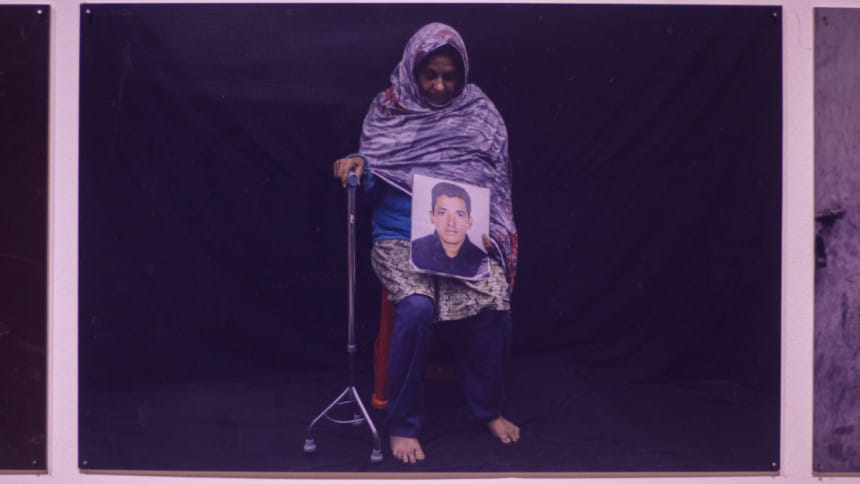
"Gum Jaan o Joban" is a powerful tribute to the families affected by enforced disappearances, brought to life through the lens of artist Mosfiqur Rahman Johan. Over the course of three years, Johan immersed himself in the lives of these families, documenting their grief, resilience, and the haunting absence of their loved ones. His work captures the essence of their experiences, offering a deeply intimate portrayal of their ongoing struggles.
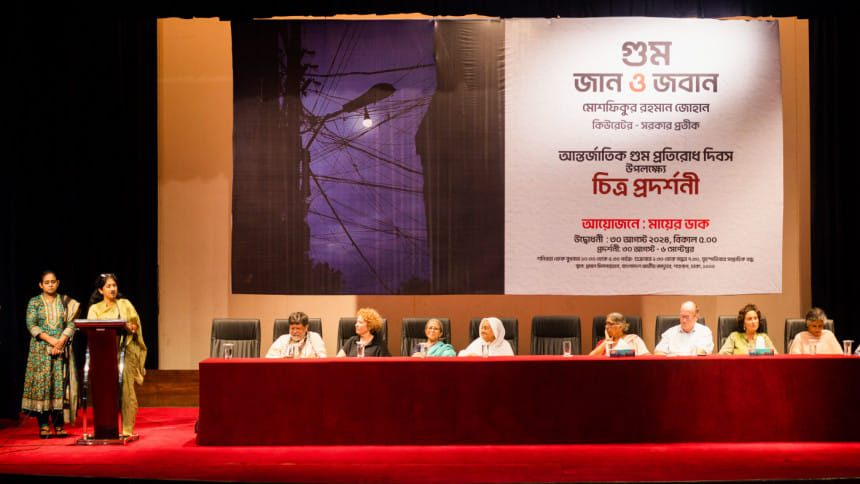
The exhibition was inaugurated on Friday, marking the International Day of the Victims of Enforced Disappearances, and is underway at the Nalinikanta Bhattasali Gallery at the National Museum in Dhaka. It revolves around 16 victim families and captures the heart-wrenching realities faced by those left behind, offering a rare and moving glimpse into the lives of the families of the disappeared.
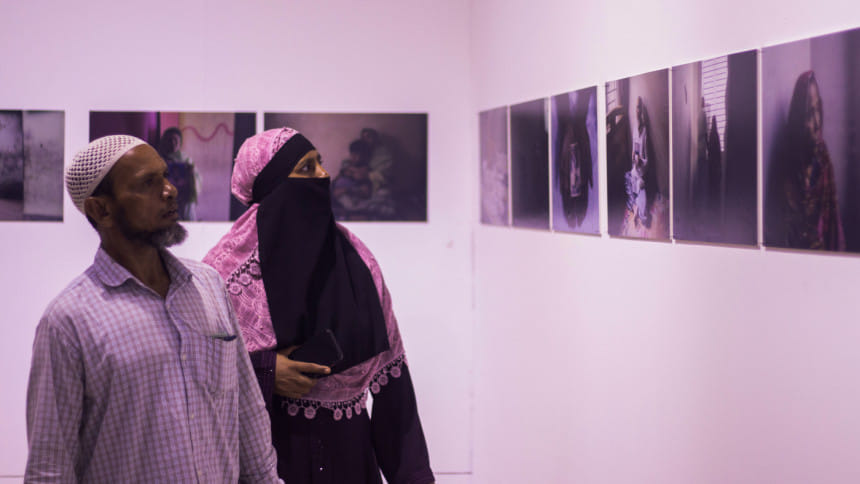
"We never thought that we would ever be able to share these stories with the public. But in this new reality, in this new Bangladesh, we now have the opportunity to exhibit this work. We hope that through our efforts, others will be inspired to share their stories as well," mentioned Sarkar Pratik, the curator.
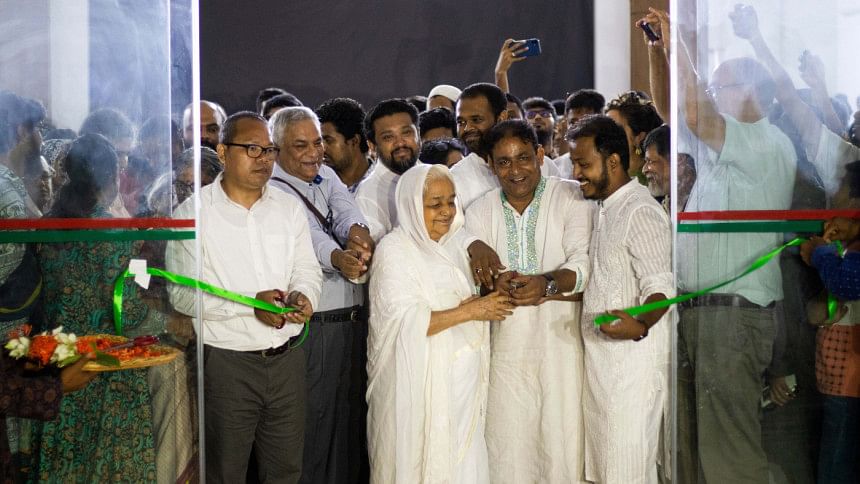
"Enforced disappearances are inherently unjust, and there is no justification for them. Every effort will be made to find those who have disappeared and to bring those responsible to justice. This is not too much to ask in a civilised society, and we will strive to ensure no government ever uses such tactics to hold onto power again," said Syeda Rizwana Hasan, Adviser on Forest, Environment, and Climate Change. Photographer Shahidul Alam, Barrister Jyotirmoy Barua, and the Chief Adviser's Press Secretary Shafiqul Alam, among others, also spoke at the event.
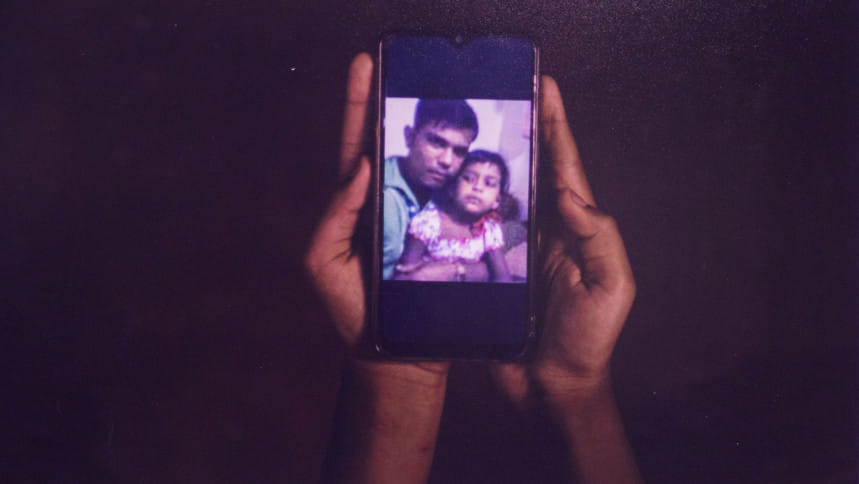
At the heart of the exhibition are Johan's photographs, which depict the everyday lives of these families. Each image tells a story of loss and endurance—whether it's a mother holding a photograph of her missing child, or a child gazing out of a window, waiting for a father who may never return. These images are windows into the profound impact that these disappearances have had on the families left behind. In addition to the photographs, the exhibition also includes diary entries and news archives that Johan collected during his time with these families.

These records provide a deeper understanding of the emotional toll that enforced disappearances have taken. It also features news clippings and records of the protests that these families have led in their quest for justice. The protest images highlight the collective strength and determination of these families, as they stand united in their demand for accountability and truth. An audio-visual recording accompanies the visual elements, adding another layer to the exhibition's narrative.

Johan's work captures the transformation of grief into activism, as these families refuse to let the memories of their loved ones be erased. "I spent years living with these families which helped me gain an unparalleled understanding of their emotions. In this exhibition, I have tried to reflect on the depth and sensitivity of this understanding. It is a long project and I hope I can do some justice to these victims," he shared.
The ongoing exhibition, organised by Mayer Daak, will run until September 6 from 10:30am to 5:00pm.
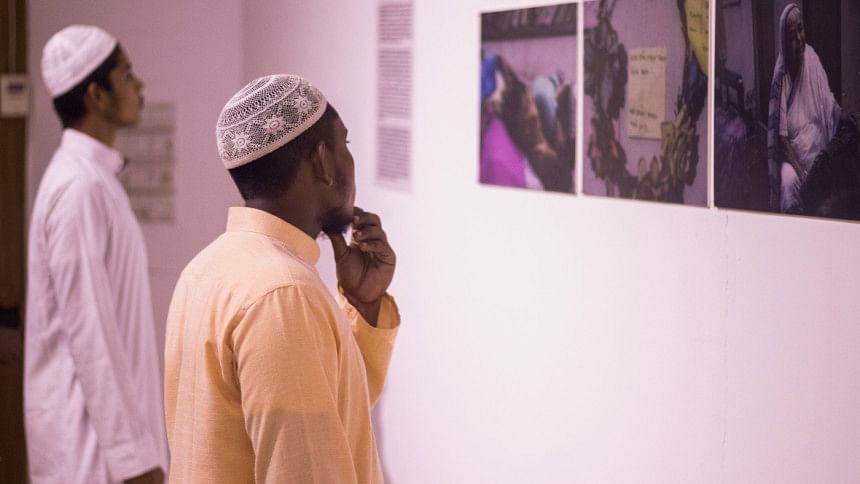

 For all latest news, follow The Daily Star's Google News channel.
For all latest news, follow The Daily Star's Google News channel. 



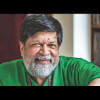
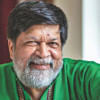


Comments